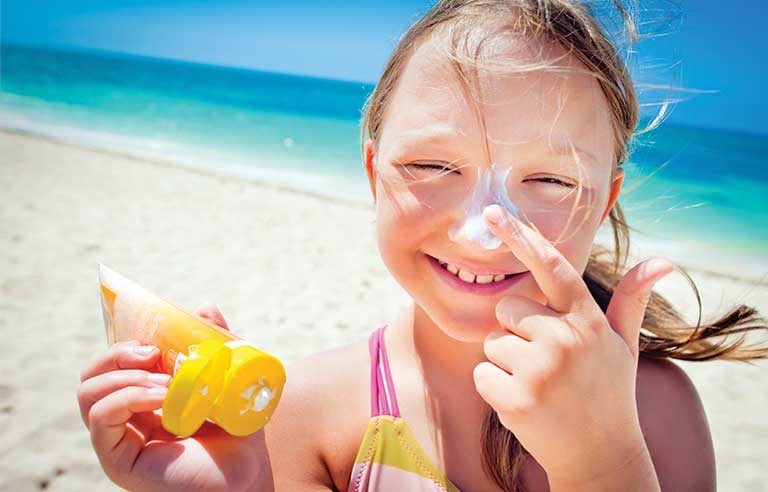Researchers warn against using homemade sunscreen

Columbus, Ohio — More than two-thirds of homemade sunscreen recipes contain ingredients that don’t provide enough protection against ultraviolet radiation, results of a recent study suggest.
Researchers looked a sample of 189 “pins” on the social media app/website Pinterest that included homemade or natural sunscreen recipes. More than 95% “positively portrayed the effectiveness of homemade sunscreens,” and 68.3% recommended recipes that wouldn’t give proper protection against UV rays, they found. One-third of the recipes made claims of sun protection factors ranging from 2 to 50.
The Center for Injury Research and Policy at Nationwide Children’s Hospital, which had two researchers participate in the study, offered the following recommendations:
- Anyone 6 months or older should use a sunscreen approved by the Food and Drug Administration. That sunscreen should shield against UVA and UVB sun rays, remain effective in water for at least 40 to 80 minutes, and have an SPF of 30 or higher.
- “Apply early and often.” Sunscreen should be applied in a thick layer – or about one-quarter of a teaspoon for a toddler’s face – approximately 30 minutes before going outside and reapplied every two hours. If a child is swimming or sweating, reapply more often and use a water-resistant sunscreen.
- Throw out sunscreen if it’s past the expiration date on the container. If there’s no date, toss it if it’s been at least three years since opening the bottle. Also, dispose of sunscreen if its color or texture has changed.
“The internet is a great place for families to go to for recipe inspiration and arts and crafts projects, but not necessarily for making their own safety-related things,” Lara McKenzie, study co-author and principal investigator at CIRP, said in a May 20 press release. “Homemade sunscreen products are risky because they are not regulated or tested for efficacy like commercial sunscreens. When you make it yourself, you don’t know if it’s safe or effective. With rising skin cancer rates, the use of effective broadband sunscreen is critical to protect the skin from UV radiation and reduce incidence of skin cancer.”
The study was published online May 21 in the journal Health Communication.
Post a comment to this article
Safety+Health welcomes comments that promote respectful dialogue. Please stay on topic. Comments that contain personal attacks, profanity or abusive language – or those aggressively promoting products or services – will be removed. We reserve the right to determine which comments violate our comment policy. (Anonymous comments are welcome; merely skip the “name” field in the comment box. An email address is required but will not be included with your comment.)
